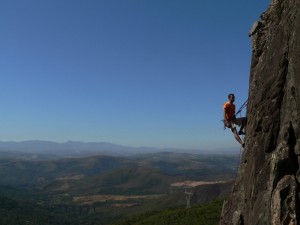History’s Greatest Quest
TELL ME, O MUSE, of that ingenious hero who travelled far and wide after he had sacked the famous town of Troy. Many cities did he visit, and many were the nations with whose manners and customs he was acquainted; moreover he suffered much by sea while trying to save his own life and bring his men safely home; but do what he might he could not save his men, for they perished through their own sheer folly in eating the cattle of the Sun-god Hyperion; so the god prevented them from ever reaching home. Tell me, too, about all these things, O daughter of Jove, from whatsoever source you may know them…”
(BOOK I, The Odyssey, Homer ca 800 BC)
Before embarking on the  journey you are about to take, some self-doubt is normal and healthy. But it shouldn’t hold you back. The very nature of self-discovery resides in your blood. Over the next few chapters, I’ll reveal how and why this is so. I’ll explain to you why your mind is wired the way it is. You might not know it now, but by the end of this historical interlude, you’ll see why capturing your Lifetime Dream lies within your innate abilities and isn’t as hard as some make it sound.
journey you are about to take, some self-doubt is normal and healthy. But it shouldn’t hold you back. The very nature of self-discovery resides in your blood. Over the next few chapters, I’ll reveal how and why this is so. I’ll explain to you why your mind is wired the way it is. You might not know it now, but by the end of this historical interlude, you’ll see why capturing your Lifetime Dream lies within your innate abilities and isn’t as hard as some make it sound.
As with all things, we begin with the Greek. Homer’s Odyssey captures the classic adventure of the trials faced by Odysseus on his twenty-year voyage back home following the conclusion of the Trojan War. The dictionary, at least the American Heritage one I looked at, defines the word “odyssey” as “an extended adventurous voyage or trip; an intellectual or spiritual quest: an odyssey of discovery.” So an odyssey is not just a journey, but an epic journey. In fact, it’s more than a journey at all, it’s a trek. An odyssey, therefore, is an ambitious, some would say heroic, trek.
Since the average person may have more familiarity with Arthur C. Clarke’s 2001: A Space Odyssey than the original Greek saga, I thought you might be interested to know this. Clarke chose the name David Bowman for his protagonist as homage to Homer’s epic poem. Odysseus, you see, was an expert archer (or “bow-man”). The movie based on Clarke’s novel used Richard Strauss’ music, which in turn was based on Friedrich Nietzsche’s book Also Sprach Zarathustra. Nietzche’s work concerned the teachings of the Persian prophet Zoroaster and included the idea that someday man would evolve into a “superman” or higher being – a journey representing the central theme in 2001. Homer also sought to display the human model of a superman through the character of Odysseus as he defeats supernatural forces in what amounts to a serial adventure. Odysseus even has his own version of Kryptonite – his pride! (Comparing Superman with Odysseus, by the way, is a favorite essay assignment of 9th grade English teachers.)
Here are History’s Top Five Greatest Odysseys:
- Homer’s Odyssey – we’ve already talked about this.
- Virgil’s Aeneid – Rome’s answer to the above.
- Columbus’ Voyage of Discovery – unlike the first two, this one was a real adventure.
- Apollo 11’s “Man on the Moon” Moment – Ironically, “Odyssey” was the name of the command module on Apollo 13, which represented a wholly different sort of adventure.
- You.
Wait. You?
Yes, you! Indeed, you might argue, at least in your own eyes, your life’s journey stands out as the most important odyssey for you. It is your own personal quest to become a Superman – an ideal that may only mean something to you, but it’s a something that transcends all else. It will take you to the top of the mountain – and beyond!
But, before you can begin this journey, there is one simple two-word command you must follow.